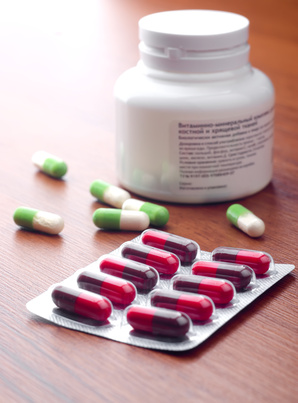Psoriasis and Vitamin B12 deficiency
Whether psoriasis and vitamin B12 deficiency have any direct connection is disputed. There are some that say definitely, while other studies have concluded that taking a good multivitamin with B12, selenium and zinc is more than enough to ensure good skin.
 Vitmin B 12 for Psoriasis
Vitmin B 12 for PsoriasisWhat are the Symptoms of a Vitamin B12 Deficiency?
To understand if there might be any connection between psoriasis and vitamin B12 deficiency, let’s look at the specific symptoms of such a deficiency. They include:
- Loss of appetite
- Weight loss
- Tiredness
- Weakness
- Depression
- Poor memory
- Brain fog
- Numbness or tingling in the hands and feet
- Vertigo or loss of balance
- Sore tongue or mouth
- Constipation
- Jaundice
- Anemia
- Paranoia
- Hallucination
Does Supplementing with Vitamin B12 Help?
Taking vitamin B12 supplement can definitely help a deficiency. However, most dietitians recommend that you try and get most of your vitamin B12 from the foods you eat. Food rich in vitamin B12, include:
- Meat: beef liver, fish, clams, crab
- Dairy
Some Conditions Can Interfere with Vitamin B12 Absorption
Unfortunately, even supplementing with vitamin B12 or vitamin B12-rich foods doesn’t always ensure that someone won’t be deficient in the vitamin. Some auto-immune conditions…and psoriasis is an auto-immune condition…interfere with the body’s ability to absorb vitamin B12. In such cases, one may have to take vitamin B12 injections.
Can Vitamin B12 Supplements Help Psoriasis?
Again, psoriasis and vitamin B12 deficiency, may or may not be connected. There is very little scientific proof that taking vitamin B12 will help psoriasis. Having said that, a study at the University of Maryland….. found that combining vitamin B12 and avocado oil in a topical treatment has improved their psoriasis or eczema symptoms.
All Vitamin Bs are Needed for Healthy Skin
Of course, at the same time, all of the B vitamins are necessary for healthy skin. According to one source, you should be taking a vitamin B complex, 3 times a day. Additionally, they recommend that you take extras of the following:
- B1 (thiamine) – important for circulation and healthy skin
- B6 (pyridoxine) – being deficient in B6 has been linked to skin disorders
- B5 (pantothenic acid) – needed for proper adrenal function
- B12 – important in cell formation
Treatment of Psoriasis with Large Doses of Vitamin B12
Back in 1953, as reported by Rudolph Ruedemann, Jr., M.D. of Albany N.Y. in the JAMA Dermatology, a study was conduction whereby patients with psoriasis was treated to vitamin B12 injections. At first injections of 30 y per cubic centimeter were administered on a weekly basis. Unfortunately the results were not that impressive.
Then in the spring of 1953, a dose of 1,000 y per cubic centimeter was administered. While the researchers tried to maintain a certain level of discipline in both the administration of the injections and in the cooperation of the patients, they weren’t always successful. There was difficulty because some patients were under the care of their local physicians, or from small towns.
The results in the 34 patients that were able to stay with the treatment for longer than two months, did show some promise. They received 1cc of a 1,000 y dose administered as an intramuscular injection once a day for a period of 10 days. Then they were give a maintenance doses (it doesn’t report the frequency of the maintenance doses), but in some cases the daily doses went on for up to 20 days or even longer.
While the results of the study may not be that impressive, it should be noted that 10 of the 34 patients showed a 75 to 80% improvement. Another six of the remaining 24 were slowing improving by the end of the study, and in their cases the treatment continued. Five of the remaining 18 experience a slight reoccurrence of the psoriasis when the treatment was discontinued too soon. However, once treatment was resumed they showed good results.
Unfortunately, there doesn’t appear to be any conclusive evidence that psoriasis and vitamin B12 deficiency are related. Then again, everyone is different and it might not hurt to supplement with a good multi B vitamin just in case you do have a psoriasis and vitamin B12 deficiency condition.
Back to top Psoriasis en la pierna
Psoriasis en la piernaPágina de inicio
Mapa del sitio
Mapa del sitio en orden alfabético
